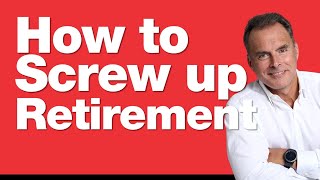| Brexit once seemed to pose an existential threat to the European Union. But Britain’s withdrawal process has had some surprising results—especially when it comes to how other member states view the EU. Read more: https://econ.st/2MmthnW
Click here to subscribe to The Economist on YouTube: https://econ.st/2xvTKdy When the UK voted to leave the European Union in 2016 some predicted it would be the beginning of the end for the EU. But since then, the EU and the way its members feel about it has changed. Could the Brexit referendum have actually benefited the European Union? Andrea Venson is on a mission. Today he’s in Milan drumming up support for one of Europe’s newest political parties. Volt Europa is a pan-European movement with political parties in 14 different countries. But Andrea has his work cut out for him. Across Europe a third of people want to leave the EU and Italy has the third highest rate at 44%. But he also has good reason to hope because since 2016 optimism about the future of the European Union has grown by over 20% and people feel more attached to the EU than before the Brexit referendum. So what’s going on? Is the European Union really gaining popularity? In some ways I think the EU is stronger because of Brexit. Brexit makes the EU feel like safety. It makes the EU feel like the organisation that protects them from the kind of chaos that ensues when you try to leave. And that really changes people’s attitudes towards what Europe is doing. Even the most Eurosceptic political parties are singing a different tune. I think there were at least 15 populist parties across Europe, as of 2016 who advocated a referendum to leave the EU or just advocated leaving the EU. Maybe one or two of them still do, explicitly. It’s really almost dropped off the agenda. It looked like the Brexit vote would pose an existential threat to the EU but it’s not the first time the EU has faced serious problems since it was established and some of the most serious ones have appeared in the past decade. In 2008 the world financial crisis led to recession in Europe. Countries like Ireland, Portugal and Greece had to be bailed out by the EU and were forced to implement austerity measures. Unemployment rates hit record highs and recessions deepened. This debt crisis was soon followed by the migrant crisis of 2015 when more than 1m refugees and migrants streamed into Europe. Many of them were fleeing war and chaos in the Middle East. No country was hit harder by both these upheavals than Greece. A few years later, Greece was on the frontline of the other European crisis- mass migration. A recent poll revealed that Greeks, more so than any other European nationality think that their interests are not taken into account by the EU. Yet Greece hasn’t turned against the European Union. Since the Brexit referendum the share of Greeks wanting to leave the EU decreased by over 20% from almost half to just a third. Both the economic and migrant crisis in Europe have receded and the EU has survived. That ambition for true unity is always going to be difficult. The EU is made up of 28 different countries each with its own history and interests. But what it has shown, is that it has a survival instinct. Over the past decade, every time that the EU has faced a crisis that looked like it might be an existential crisis it’s become abundantly clear that EU leaders have the political will to hold the union together. That European countries have so much at stake in the survival of this union that, ultimately, they do what needs to be done to hold it together. It’s just that they often do that at the very last minute. For more from Economist Films visit: http://films.economist.com/ |
Tags:








































